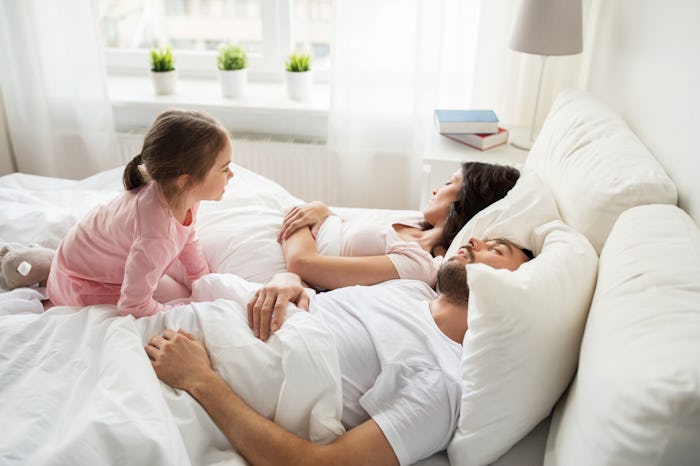Life
Here's Why You Might Be More Tired On The Fall Equinox
If you find yourself feeling particularly low energy towards the end of September, you're likely to blame your family's hectic back-to-school schedule or your fall allergies kicking in. And while it's possible that either or both of those things is making you tired, there's another potential reason to consider. The fall equinox is on September 22 this year, marking the official beginning of autumn, which you probably knew. But did you know how the fall equinox can affect your sleep?
It might seem odd to think that something like the movement of the planets could legitimately affect your sleep, but it makes perfect biological sense. The autumnal equinox, which happens when the center of the sun crosses the Earth's equator, kicks off a short period of time when days and nights around the world each last close to 12 hours, as Live Science explained. As the Earth continues around the sun, the days become shorter and the nights longer.
"This change in the amount of light is a signal to animals, plants and, before the light bulb, people, of changing seasons."
Since the advent of artificial light, we humans haven't physically relied on daylight as an indicator of season. That's why generally, human production of the hormone melatonin (which regulates sleep) doesn't change with shorter days and longer nights. Except... in some people, it apparently still does. A 2001 study published in the journal Archives of General Psychiatry found that people suffering from Seasonal Affective Disorder secreted melatonin for longer periods at night during the winter than the summer. This biological response in patients with SAD "is similar to the signal that mammals use to regulate seasonal changes in their behavior," according to the study.
In other words, some people physically respond to the fall equinox like bears or squirrels or foxes who somehow just know that it's time to hibernate or gather nuts or turn white to blend in with the coming snow. Unfortunately, while the hibernating thing still works well for forest animals, it's not quite as effective for human beings who still have to get up every morning and actually function in the world no matter how snowy and dark it is.
Of course, you don't have to suffer from SAD to find yourself on the sleepier side when the season switches from summer to fall.
"When the amount of daylight changes from season to season, our biological rhythms can get 'out of whack,' resulting in disrupted sleep patterns," explained the ACMC Health website.
Exercising and "keeping a regular sleep schedule with six to eight hours of sleep per night" can help, the site continued. (Um, because it's no problem for you to get six to eight hours of uninterrupted sleep per night, right?) Seriously though, just knowing that you're not going crazy during this tiresome time can go a long way in helping you to feel a little better. That's especially true if you use this seasonal change as an excuse to practice extra self-care. Like when you find yourself giving in to that afternoon nap, remember that your body needs that nap because it's accidentally going into hibernation mode... and don't allow yourself to feel guilty. (Would a bear feel bad about putting off the dishes?)
